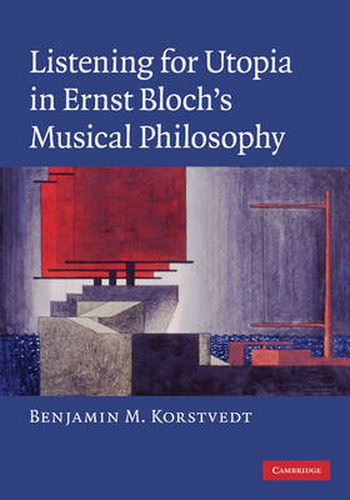Readings Newsletter
Become a Readings Member to make your shopping experience even easier.
Sign in or sign up for free!
You’re not far away from qualifying for FREE standard shipping within Australia
You’ve qualified for FREE standard shipping within Australia
The cart is loading…






The musical writings of the German philosopher and theorist Ernst Bloch are extraordinarily rich, but also unusually dense, at times even cryptic. Bloch, a profoundly heterodox thinker, brilliantly wove cultural criticism into a larger project of what he termed ‘revolutionary gnosis’. Listening for Utopia is both an explication of Bloch’s musical thought and a critical development of it. Ultimately, the book seeks to reanimate Bloch’s philosophy of music in ways that connect with current musicology. The work begins with a detailed study of concepts crucial to Bloch’s aesthetics that situates them within both his philosophical system and German critical theory of the early twentieth century. The second half of the book comprises a series of essays that take up key ideas from Bloch, decipher them through contextual and close reading, and develop them through critical application to salient musical masterpieces by Wagner, Mozart, Bruckner and Brahms.
$9.00 standard shipping within Australia
FREE standard shipping within Australia for orders over $100.00
Express & International shipping calculated at checkout
The musical writings of the German philosopher and theorist Ernst Bloch are extraordinarily rich, but also unusually dense, at times even cryptic. Bloch, a profoundly heterodox thinker, brilliantly wove cultural criticism into a larger project of what he termed ‘revolutionary gnosis’. Listening for Utopia is both an explication of Bloch’s musical thought and a critical development of it. Ultimately, the book seeks to reanimate Bloch’s philosophy of music in ways that connect with current musicology. The work begins with a detailed study of concepts crucial to Bloch’s aesthetics that situates them within both his philosophical system and German critical theory of the early twentieth century. The second half of the book comprises a series of essays that take up key ideas from Bloch, decipher them through contextual and close reading, and develop them through critical application to salient musical masterpieces by Wagner, Mozart, Bruckner and Brahms.